“If Tennessee Williams doesn’t know what to do with his life, why should I worry?”
~ Eddie Woods, Tennessee Williams in Bangkok
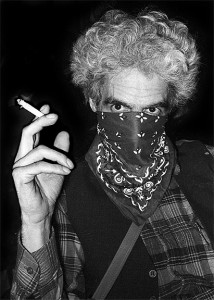 Eddie Woods and I go back to October 1978. It was in Amsterdam at the Ins & Outs HQ and then the following evening at the One World Poetry event at Amsterdam’s pop palace, the Paradiso, where Eddie, enthusiastic beyond reason, put me on the schedule to read just before William Burroughs. Talk about nerves getting the best of me. Let’s not.
Eddie Woods and I go back to October 1978. It was in Amsterdam at the Ins & Outs HQ and then the following evening at the One World Poetry event at Amsterdam’s pop palace, the Paradiso, where Eddie, enthusiastic beyond reason, put me on the schedule to read just before William Burroughs. Talk about nerves getting the best of me. Let’s not.
Eddie has always impressed with the way he tempers his enthusiasm with his unrelenting insistence of precision in language & thought. It reminds me of a wild painting that still has to fit inside a rectangular picture frame somehow. But his enthusiasm is not limited only to language, which seems boundless [& scrupulously surgical] – imagine Joyce’s Ulysses rewritten as a typo-less short story. His enthusiasm spills past these frameworks of language usage and his own oeuvre. It is for words, for literature as incantation, as foot in the door, as a map to another reality. And we’re not done yet because talk about his own work and he will inevitably end up touting the work of one or more of his comrades. You see, his enthusiasm for literature and that of his allies and friends is … inexhaustible.
This boundlessness may have to do with genetics – he describes himself as sometimes [often] manic. Manic put to use without a Red Bull in sight. Overdrive in the name of the glory of the word. This boundlessness and enthusiasm may also be less DNA-bound and more related to the way the dice get rolled by life: Eddie has been a pilgrim most of his life. Home has usually been defined by wherever he can smoke a cigarette without an evil look and a corner where he can lay down pen and paper. He reminds me of the a Basho-like poet-Zen Buddhist (with a nod to gangster style [spitting words as bullets], a few moves cribbed from Sinatra & an animistic-Buddhist-Hindu-lapsed Catholic agnosticism thrown in, just for good measure).
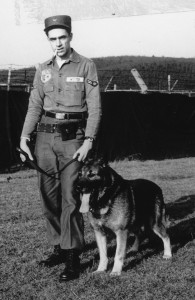 He has been an ex-pat for some time [an authentic one, an ex of a former empire; not like those in the current parlance: a temporary-resident-businessman in a foreign country] and has managed to survive [& thrive] on his wit & the kindness of strangers & friends for some time now. But it is not for nothing. Not strictly charity. He offers value added – the enthusiastic irrepressible hope that literature can make a difference & that is not something you can put a price tag or wage rate on.
He has been an ex-pat for some time [an authentic one, an ex of a former empire; not like those in the current parlance: a temporary-resident-businessman in a foreign country] and has managed to survive [& thrive] on his wit & the kindness of strangers & friends for some time now. But it is not for nothing. Not strictly charity. He offers value added – the enthusiastic irrepressible hope that literature can make a difference & that is not something you can put a price tag or wage rate on.
Poetry, fiction, writing, for Woods, are not just craft & career, they are passports to elsewhere. He joined the armed forces as part of an exit strategy from a dead end America, which had no use for his kind of enlightened [not yet] “deadbeat.” As an Air Force enlistee, he quickly made his mark, working the shadowy nethers of the system, learned German and made his way around Europe in the early 60s.
But, in the best meaning of the term, he has become a man without a country, with no place to call home – or is that ANY place is home except the place THEY call home? This is the mark of the anti-nationalist, a man of the world, living in it but loyal to no single land. As Tim Buckley once said: “You don’t serve your country – you serve life, you serve people.” In fact, he’s not even for the concept of a world passport he’s all for NO passport at all. But until that utopic borderless day, he remains a non-American with an American passport.
There are distinct periods in his life: Queens, NY; Upstate, NY; Air Force, encyclopedia salesman, India, Bali, Singapore, Germany, Tehran, Thailand and Amsterdam, where he established the essential ball-busting mag. of the late 1970s, Ins & Outs [it also came with an HQ, a bookstore & a bit of lifestyle] . The magazine was a heady mix of poetry, critique, sex, politics & provocation, & served as an essential link between European
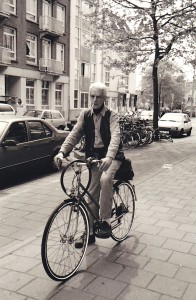 avant-gardes, global authors and the American post-war Beats & others. This seems like a natural but, even today, with egos & presumptions remaining essentially intact, it was a bit of a piece of leveraged art & negotiation. & so Woods became & has remained an essential link between isms, styles, continents, egos. Ins & Outs featured an impressive portfolio of authors, poets & artists: Bowles, Ginsberg, Jack Micheline, Harold Norse, Corso, Vinkenoog, Charles Henri Ford, Jan Kerouac, Ferlinghetti, Malanga, Hans Plomp, Bob Black, Heathcote Williams, Bill Levy and many more. And he also put out a series of spoken word cassettes featuring the likes of Norse & Micheline that were recently reissued on vinyl & CD. Ins & Outs fostered a floating nomadic borderless intelligentsia that offered up alternatives to the status quo & all of its binding conformities.
avant-gardes, global authors and the American post-war Beats & others. This seems like a natural but, even today, with egos & presumptions remaining essentially intact, it was a bit of a piece of leveraged art & negotiation. & so Woods became & has remained an essential link between isms, styles, continents, egos. Ins & Outs featured an impressive portfolio of authors, poets & artists: Bowles, Ginsberg, Jack Micheline, Harold Norse, Corso, Vinkenoog, Charles Henri Ford, Jan Kerouac, Ferlinghetti, Malanga, Hans Plomp, Bob Black, Heathcote Williams, Bill Levy and many more. And he also put out a series of spoken word cassettes featuring the likes of Norse & Micheline that were recently reissued on vinyl & CD. Ins & Outs fostered a floating nomadic borderless intelligentsia that offered up alternatives to the status quo & all of its binding conformities.
So unique was he as a bridge between movements, nations, styles & personalities that at the doormat of the 21st century, Stanford [among others] became interested in his archive. Woods eventually commissioned me to help give this amorphous some order & logic. It was sold to Stanford in 2003 &, just as Woods would have it, it remains a dynamic, not-dust-gathering, living archive.
That he himself has a significant oeuvre only became more evident – & significant – recently with the addition of Tennessee Williams in Bangkok. It reveals many of the watermarks of a Woods piece: meticulous eye for detail, the elaboration of alternative lifestyles, scrupulous insights into the soul & – with or without the presence of Tennessee – as the wandering Zen-Catholic-outlier, as a sexual nomad who has often managed to transform living on the edge [of poverty & security] into a life of riches – prince & pauper as one & the same being who chose sexual adventure & spiritual seeking over bank account & a pension plan. He could indeed be one footnote under the entry for alchemist.
Again in this book, Woods ends up as that spiritual bridge between worlds, between known and unknown, coloring in a bit of undocumented literary history during the early 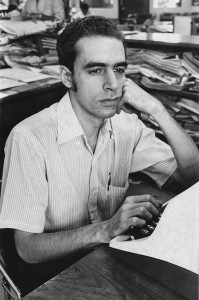 1970s, when Williams spent time in Thailand, looking for himself or anything that might make him forget the self others preferred him to be. Woods was a journalist at the time, working for a daily in Bangkok and met Williams in a not dissimilar state of self-doubt-self-seeking & they embark on an interesting, amusing investigation of the heart of the self & how a foreign place, circumstances beyond your control, identity, exotic geography, & happenstance can lead you to where you need to be.
1970s, when Williams spent time in Thailand, looking for himself or anything that might make him forget the self others preferred him to be. Woods was a journalist at the time, working for a daily in Bangkok and met Williams in a not dissimilar state of self-doubt-self-seeking & they embark on an interesting, amusing investigation of the heart of the self & how a foreign place, circumstances beyond your control, identity, exotic geography, & happenstance can lead you to where you need to be.
The book colors in the vague outlines & ruminations of Williams’ time there, something that is missing from the biographies & in setting out to write this book about Williams & his perambulations ended up discovering a whole lot about himself.
bart plantenga interviews Eddie Woods
• bp: How did this book of your time in Thailand &, to some extent, Tehran come about? Why did it need to be written? For posterity but also for yourself I gather.
• EW: I’m constantly being urged to write my autobiography. Yet it’s never going to happen like that. I’ve written about various personal experiences in partly fictionalized short stories and other prose pieces. Also in some of my poems. But this is one period I’d not gotten into. Then Theo Green of Inkblot Publications asked for a book about my time in either Thailand or Persia and I jumped at the chance. Jumped because I’ve long wanted to tell the full story of Kim, my Chinese drag-queen prostitute lover. I felt I owed it to her. For who she was and what she meant to me. And for letting her vanish from my life. Tennessee Williams, on the other hand, I’d resisted writing about. Especially for money (I speak of this in the Epilogue). I saw it as tacky, to trade on a famous person’s name. All the more so since we were friends. But Inkblot is a small press, I won’t be earning on the book, and that set me free. For me, the real key and further incentive was that Williams and Kim met when he and I went down to Singapore and I introduced them. So I use them as a magic carpet in order to portray everything relevant that occurred during my 2+ years in Bangkok. Yes, for both myself and posterity. And to give folks an enjoyable read. Poetry you write for yourself. With prose you need to take the reader into consideration.
• bp: I noticed that writing about that period shook loose not only many anecdotes & observations concerning the time you spent with Williams but also memories of before & after, as you began to discover that you liked – and were good at – writing all sorts of news, sports and entertainment stories – including an absurdist play about meeting Williams that the Bangkok Post published.
• EW: The aim was to tell it all. Thankfully I’ve a good memory. Once I got going the anecdotes kept popping up and connecting with one another. Writing the book was an adventure nearly as exciting as living through all that happened.
• bp: Although delivered with enthusiasm & vividness – I got a good sense of life in early 70s Thailand – at a slender 156 pp, I get the feeling there is a LOT more material that you just barely seem to wet your big toe in. Why? Was it in deference to the title – to stay focused on the subject at hand & the immediate period surrounding it?
• EW: Slim though the book may be, I feel it covers plenty of ground. Apart from Kim, Tennessee, and me, there’s lots about the politics of Singapore and Thailand including an electrifying description of a public execution. There’s my features writing for the newspaper and my radio work. There’s sex other than with Kim. There’s my spy friend Carl! … Sure, I coulda’ thrown in upcountry Thailand and Laos. But too much extraneous detail would have been overkill … Tennessee told David Frost he covered the waterfront. I covered Bangkok and Singapore.
• bp: Are there plans to write more about your travels to India, Bali, more on Thailand, and never mind the potential for a Catch-22 or MASH-style book about the Air Force years or the dynamic early Amsterdam years… If I have my way, you’re going to be very busy. I seem to remember that you & 1970s girlfriend & travel partner, Jane Harvey, were contemplating a book about your India travels…
• EW: My next memoirs book will be The Road to Kathmandu. It starts in Ceylon [now Sri Lanka] (where I went after six months in Bali and a month traveling thru Java) and obviously ends in Nepal. In between there’ll be Moscow, Europe and Morocco, England, Iran, Afghanistan, Pakistan, and India. Also Taiwan, Korea, and the USA. From 1974 on, 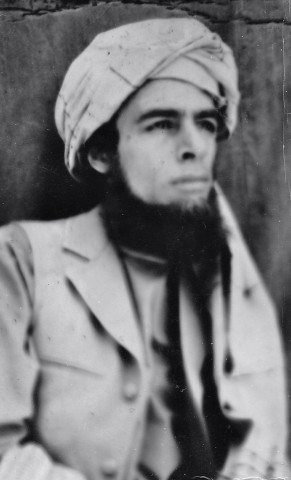 Jane will be very much in it. And it will draw heavily on my extensive travel journals and lengthy letter exchanges with Jane when we were on different parts of the planet.
Jane will be very much in it. And it will draw heavily on my extensive travel journals and lengthy letter exchanges with Jane when we were on different parts of the planet.
After that, enshallah, there’ll be The Bookman. My later teenage years and the Air Force years, Germany and two marriages, all the way thru to Hong Kong, etc. and eventually Bangkok. Amsterdam is another story. I’m 73 now and have been here for the better part of 35 years. What’s not told in A Brief History of Ins & Outs Press might best be left unsaid.
Stay tuned for two other works in progress: Eddie Woods Snapshots (prose vignettes) and Whores & Other Lovers (poems and photographs). Oh, then there’s my poems cycle book, published in 2005, Tsunami of Love. About the six years I spent in Devonshire, England. That too is a memoir. A memoir of the rise and fall of an ultimately insane relationship:
I am not one to hide behind clouds of mystery.
Once I get talking, my life is an open book.
But that comes with a price, namely so is yours…
• bp: You have again managed to bridge 2 worlds & fill in missing history as you did earlier with Ins & Outs. Is this function as bridge or missing link something totally circumstantial or happenstance or is there something in your character that draws things together to create a new mix? I mean as a DJ, I like putting together kinds of music that seldom if ever come to meet each other & often create a new way of seeing or hearing the individual pieces… Any thoughts?
• EW: Circumstance invariably plays a role. Or maybe it’s a kind of destiny. Either way, you have to help it along. I like meeting and interacting with people. I’m intensely curious (“I’ve never before known anyone who wanted so badly to know,” Jane said to me shortly after we met). And I get off on facilitating unlikely hookups in the service of Art. Connecting the sinner with the saint, the traditional with the ultra-hip sort of thing. Same as with you and music, no? Let’s cross-pollinate these seemingly disparate elements and see what blossoms. And hey, what I really dig nowadays is working with young people. Not only to give, but to learn. Talented youth turns me on. Orgasmically. May I forever remain young at heart. Should we put some Sinatra on now?
• bp: Well, there’s Dylan’s “Forever Young”: “May you always do for others / And let others do for you / May you build a ladder to the stars / And climb on every rung…” Or Sinatra’s version of “Young at Heart”: “You can go to extremes with impossible schemes…” I wanted to know how travel or geography affected how you write? Do you ever imagine what a straighter, more sedentary existence might have led to instead?
• EW: The answer to your second question is No. I prefer to save my imaginings for more interesting speculations and fantasies. As for the first, in more ways than there’s space here to get into. But that’s me, and that was Jane. Like when we cycled across India. Or I walked alone through Himachal Pradesh and hitchhiked around Europe and the States. Yet Emily Dickinson didn’t have to go anywhere other than deep into herself. While Henry David Thoreau rarely set foot outside of his native New England.
• bp: Were you born with this vivacious ability to forego shyness? I mean, I would find it difficult to summon the moxie or hit upon the right line to approach someone like Williams in any location or circumstance.
• EW: Would you? Celebrity aside, he was just another guy, after all. A people, same as us. I tell in the book how that became clear to me when Tennessee dejectedly said he didn’t know what to do with his life. But okay, I’m ballsy. And was for several years a successful encyclopedia salesman. In childhood I was plagued by shyness and fear of my own shadow. In my early teens I wrenched myself out of it. On the sidewalks of New York it was either that or die. Some of the shyness lingered, though. Otherwise I couldn’t count, albeit on one hand, the women I might have slept with and should have slept with but didn’t.
• bp: As adventurous sexual seeking was a part of this quest, the story about Williams & about you led to the discovery that you were interested in the male of the species, in particular the more effeminate, cross-dressing, ambiguous, transgender among us. How do you see this period compared to the rise of the new puritanism of today? It may be partially due to new evidence of the perils of human trafficking. But it seems the new Puritans have latched onto this to try to shut down many of the alternative sexualities out there, using one brand of feminism to hide behind & promote their own fears or embedded socially determined notions of sexuality. Is that your take?
• EW: First let me set the record straight. The queer record. I knew I was bisexual prior to meeting Tennessee. And at the time we met I was mainly homosexual. I’d already lived 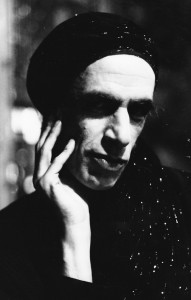 with Kim for three months, right? My mother was a hairdresser, I grew up surrounded by gays. But not until a beautiful black GI seduced me in Hong Kong did I know I was queer. And yes, I prefer feminine types. And adore lovely drag queens. I’m a male lesbian. The new puritanism? Puritanism never went away. The so-called sexual revolution was a smoke screen. Sex scares people. In the West, homosexuality is no longer a crime (RIP Oscar Wilde). But in the minds of the majority, hetero and the missionary position still rule. Artists are not the majority, God bless us. Nor are the real-deal feminists; e.g., Erica Jong, Camille Paglia, and a small handful of others. That’s my take in a nutshell.
with Kim for three months, right? My mother was a hairdresser, I grew up surrounded by gays. But not until a beautiful black GI seduced me in Hong Kong did I know I was queer. And yes, I prefer feminine types. And adore lovely drag queens. I’m a male lesbian. The new puritanism? Puritanism never went away. The so-called sexual revolution was a smoke screen. Sex scares people. In the West, homosexuality is no longer a crime (RIP Oscar Wilde). But in the minds of the majority, hetero and the missionary position still rule. Artists are not the majority, God bless us. Nor are the real-deal feminists; e.g., Erica Jong, Camille Paglia, and a small handful of others. That’s my take in a nutshell.
photo credits
Eddie Woods as The Bandit (early 1980s) Photo © by Ira Landgarten; Airman Eddie (1963) Sembach Air Base, West Germany; Bicycle Eddie. Photo © by Jane Harvey; Eddie Woods at the Bangkok Post (1971) Photo © by Harry Rolnick; Afghan Eddie (Kabul 1975); Eddie Woods in drag at Paradiso (1978) Photo © by Lucienne Naber.
bart plantenga is the author of many books of fiction including BEER MYSTIC, Wiggling Wishbone, (Autonomedia, 1995), Spermatagonia: The Isle of Man (Autonomedia, 2004), Paris Scratch (Barncott Press 2012), and NY Sin Phoney in Face Flat Minor (Barncott Press 2012). His books Yodel-Ay-Ee-Oooo: The Secret History of Yodeling Around the (World (Routledge, 2004) and Yodel in HiFi (University of Wisconsin Press, 2012) and the CD Rough Guide to Yodel (2006) and his Youtube channel Yodel in HiFi Top 50+ have created the misunderstanding that he is a yodel expert. He has produced his radio show Wreck This Mess since 1986 in NYC (WFMU), Paris (Radio Libertaire) and Amsterdam, where he lives and hopes with partner Nina and daughter Paloma Jet.
Essays
Eddie Woods has definitely been around the block, but TENNESSEE WILLIAMS IN BANGKOK takes you much further than just around the block. Eddie lets it all hang out like the cool dude he truly is,not pitifully dripping globs of unwarranted sticky semen all over the pages, but dropping the whole load by ejaculating his powerful truth right to the heart of the matter, lifting the curtain of illusion so that his readers get a clear view of what we call reality. If you have never taken a walk on the wild side and have wondered what exists there, then read this book.
Some wines get better with age. Eddie Woods is of that vintage. I cheerfully await the next bottle.